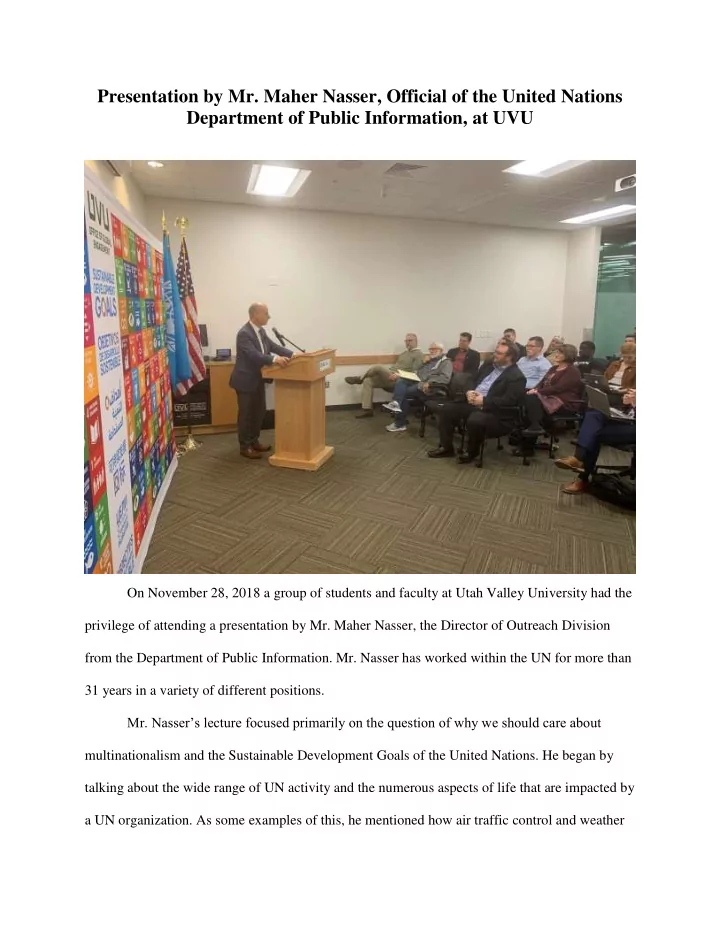

Presentation by Mr. Maher Nasser, Official of the United Nations Department of Public Information, at UVU On November 28, 2018 a group of students and faculty at Utah Valley University had the privilege of attending a presentation by Mr. Maher Nasser, the Director of Outreach Division from the Department of Public Information. Mr. Nasser has worked within the UN for more than 31 years in a variety of different positions. Mr. Nasser’s lecture focused primarily on the question of why we should care about multinationalism and the Sustainable Development Goals of the United Nations. He began by talking about the wide range of UN activity and the numerous aspects of life that are impacted by a UN organization. As some examples of this, he mentioned how air traffic control and weather
forecasting would be impossible without international coordination and cooperation. He also mentioned how the worlds largest humanitarian organization is part of the UN, and that as a result, 45% of the worlds children are vaccinated through UNICEF. He mentioned how the image of the United Nations is often unfavorable in the public eye, and that although what most is shown of the UN in the media is ineffectual gridlock, 80% of agreements made in the UN are by consensus. He then discussed the three pillars of the UN, which are: Peace and Security, Development, and Human Rights. Regarding peace and security, many conflicts and attacks have been prevented behind the scenes within the UN. Fighting terrorism would be impossible to accomplish without the international cooperation facilitated in the UN. He used an analogy of the UN being similar to an immunization. It might be difficult to prove that the reason you don’t get sick is because of an immunization received, because the preventative measures are taking place out of sight. The UN’s prevention of conflict is similar. Mr. Nasser went on to discuss the growth of the UN from 51 to 93-member states, and how at its founding, most of the world was unfree. However, the UN has laid the groundwork for more liberation and Human Rights conventions than any other influence in history. The lecturer’s purpose in discussing all of these points was to illustrate the need for international cooperation that the UN provides. Diseases, organized crime, and terrorism are all issues that are not contained by borders and that require cooperation to be addressed properly, and the UN provides the mechanisms for these very issues to be addressed for the best interests of the entire world. The UN provides a neutral actor that can be viewed with more trust than a single nation that might be acting with its own interests in mind.
In the latter half of his lecture, Mr. Nasser spoke extensively about the issue of climate change. He illustrated a summit that is scheduled for September of next year to be held in Salt Lake City, wherein national leaders and experts from around the world will meet to present and discuss solutions for the climate change issue. Nathan Wagstaff, UVU student
Recommend
More recommend